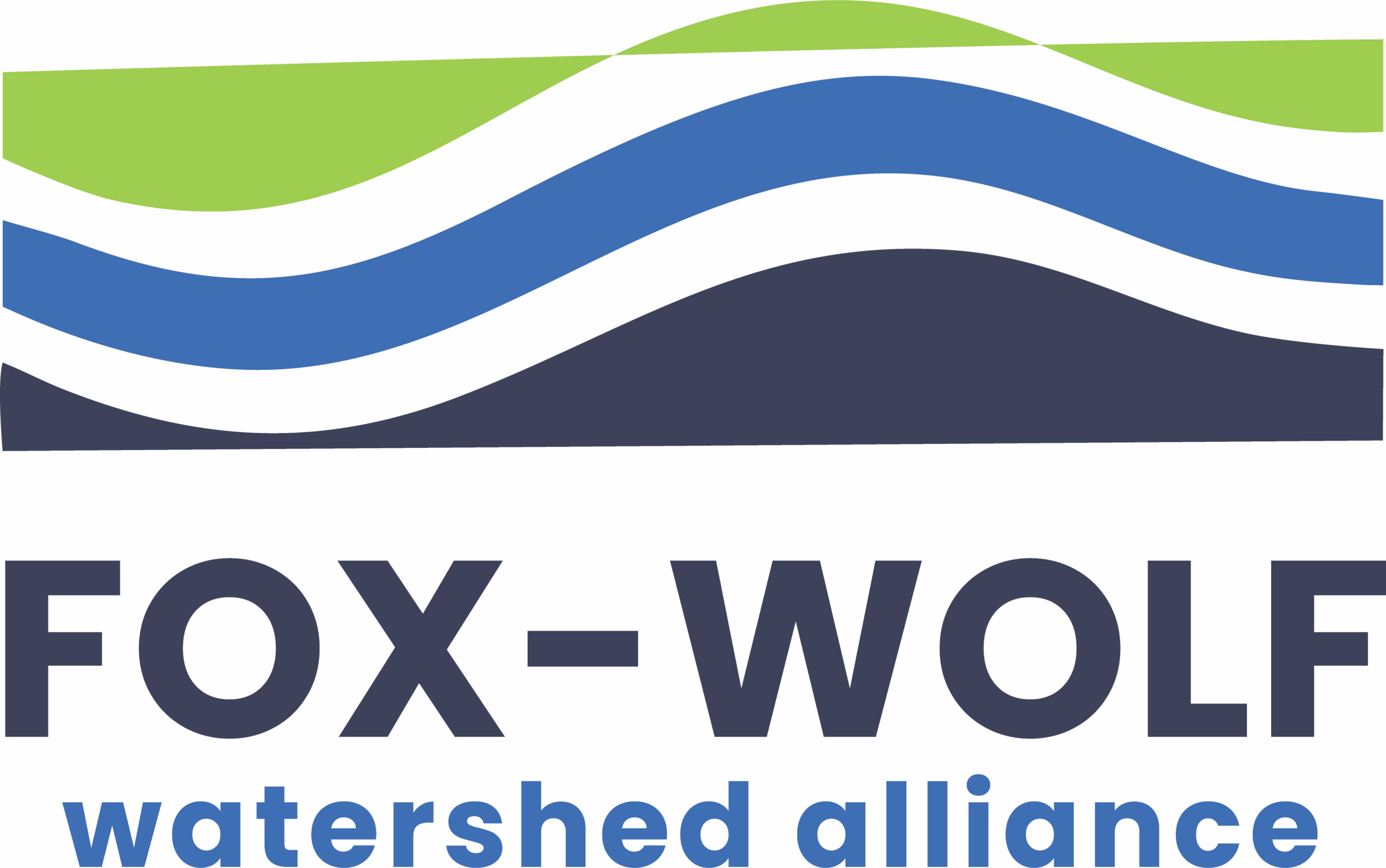
The Winnebago Waterways Recovery Initiative facilitates regional coordination and implementation of restoration and protection efforts for the Winnebago Lakes and surrounding watersheds. Priority implementation projects are outlined in the Winnebago Waterways Lake Management Plan and the draft Healthy Land, Healthy Water: A Strategic Watershed Plan for the Winnebago Waterways.
Winnebago Waterways is a program of the Fox-Wolf Watershed Alliance. The Fox-Wolf Watershed Alliance is an independent non-profit organization that works to protect and restore the water resources of the Fox-Wolf River Basin. We are focused on finding cost effective, science-based solutions. To meet our goals, we work with partners to maximize efficiencies, bringing resources to those who are already doing great work while utilizing our strengths to fill gaps when needed.
We invite you to explore our website and blog to learn more.
 Restoration of the Winnebago Lakes is the primary focus of the Winnebago Waterways Program. This requires significant effort in 32 surrounding watersheds from multiple organizations and individuals.
Restoration of the Winnebago Lakes is the primary focus of the Winnebago Waterways Program. This requires significant effort in 32 surrounding watersheds from multiple organizations and individuals.
The Winnebago Waterways Recovery Area (WWRA), located in northeast Wisconsin, is approximately 1,200 sq. miles, consists of 32 HUC12 subwatersheds and spans five counties. The four Winnebago Lakes, which cover 159,097 surface acres within the WWRA, have more than 7,000 shoreline tax parcels, serve as a source water for over 200,000 people and are prized for fishing, boating, and sturgeon spearing. Over two million people live within 75 miles of the Lakes and recreational fishing contributes over $300 million annually to the region.
The main tributaries are the Upper Fox and Wolf Rivers that drain approximately 5,900 sq. miles to Lake Winnebago. Winnebago discharges into the Lower Fox River and flows north to the Bay of Green Bay. Land cover is predominantly cultivated crops, hay/pasture, and forest along with major developed areas in the cities of Oshkosh, Neenah, Menasha, and Fond du Lac.


Gary Doering, water quality volunteer, uses a Secchi disk to measure water clarity.
Our waterways are a reflection of how we manage our land. The water quality in our creeks, streams, rivers and lakes can serve as a report card for the watershed that drains to it. The harmful algal blooms, excessive phosphorus, and low water clarity in the four lakes tells us that we have work to do. Many issues contribute to these problems including pollution and how people use and manage the lake system. Phosphorus and sediment pollution come from a handful of primary sources including urban and agricultural runoff, streambank and shoreline erosion, point-source discharge, and resuspended lake sediment.
Due to the water quality impairments in the Winnebago System, a total maximum daily load (TMDL) was developed by the Wisconsin Department of Natural Resources (WDNR) for the Upper Fox and Wolf River (UFW) Basin. TMDL data provided the basis for the phosphorus pollution reduction targets and water quality targets outlined in the Winnebago Waterways Lake Management plan (WWLMP). Reducing phosphorus pollution often also means reducing sources of total suspended solids (TSS) such as erosion and flooding which are additional concerns in the watershed.
In addition to the lake plan, we are in the process of revising final drafts of watershed plans for the 32 HUC12 subwatersheds located within the Winnebago Waterways Recovery Area. The lake plan combined with the watershed plans will be called the Winnebago Waterways Recovery Plan.
The Winnebago Waterways Recovery Plan lists recommendations for ways to improve the health of the lakes and manage this incredible resource. We invite you to learn more!
CLICK HERE for the Winnebago Waterways Recovery Plan webpage

We have several projects and programs that take aim at reducing urban and agricultural runoff, restoring in-lake and wetland habitat, shorelines and streambanks, and evaluating progress. Many of our projects are multi-partner and multi-funder which allows for greater impact and higher likelihood of long-term success.
Visit our Projects webpage to learn more about our initiatives and how you can get involved! CLICK HERE
Base funding for our program comes from the Winnebago Waterways Committee and generous donors. The Committee was created in 2017 when the surrounding counties formalized their commitment to restoration of the Winnebago Lakes. We leverage our base funding to secure grants from many different sources to fund projects ranging from small shoreline plantings to million dollar restorations.
Visit our Program Support page to learn more. CLICK HERE

Winnebago Waterways is a Fox-Wolf Watershed Alliance recovery initiative.
Contact us at wwinfo@fwwa.org

